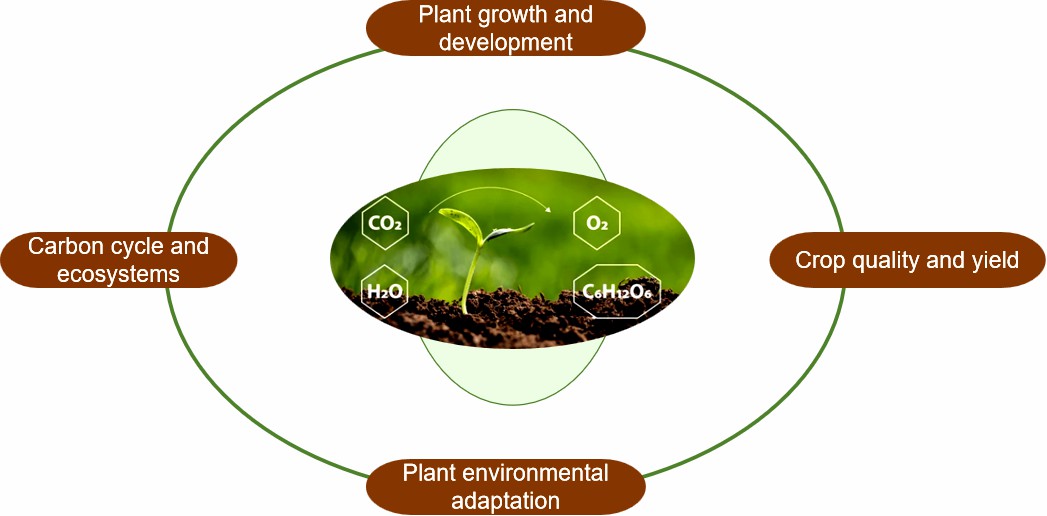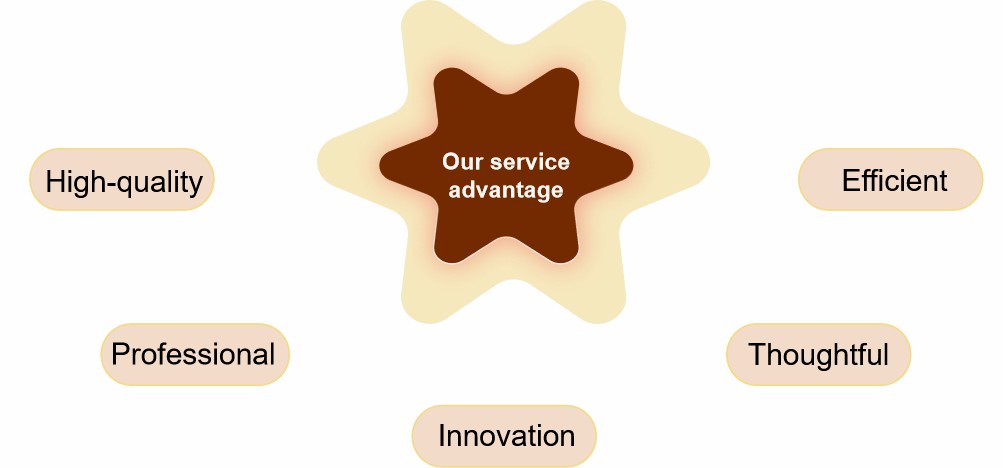Carbon Metabolism Biochemical Analysis
Biochemical analysis of plant carbon metabolism is essential for understanding plant metabolic pathways under different environmental conditions and revealing how plants adapt to environmental changes. Optimizing plant carbon metabolic pathways can improve crop yield and quality and enhance adaptation to adverse environmental conditions. Lifeasible provides comprehensive and systematic biochemical analyses of plant carbon metabolism, aiming to help researchers gain a deeper understanding of plant carbon metabolism and promote research progress in plant molecular enzymes.
Significance of Carbon Metabolism Biochemical Analysis
Understanding how plants modify their metabolic pathways to maximize growth and survival under various environmental situations depends on the biochemical investigation of plant carbon metabolism. It aids in illuminating how plants adjust to environmental changes, such as how they react to pests, diseases, nutritional stressors, and climate change. Theoretically, food security and sustainable agricultural growth can be supported by improving crop yield and quality and their resistance to environmental challenges through modifying and optimizing plants' carbon metabolic pathways.
 Fig.1 Biochemical analysis of plant carbon metabolism. (Lifeasible)
Fig.1 Biochemical analysis of plant carbon metabolism. (Lifeasible)
Our Service for Carbon Metabolism Biochemical Analysis
In helping researchers gain a deeper understanding of plant carbon metabolism, we offer the following services covering different key stages of carbon metabolism and studying important enzymes in bioenergetics.
Kinetic analysis of key enzymes of carbon metabolism
Enzymes are the catalysts that drive biochemical reactions, and understanding their kinetic profiles can help reveal the rate control points and regulatory mechanisms of carbon metabolism. We provide kinetic analysis services for the following key enzymes as follows.
- Rubisco (ribulose-1,5-bisphosphate carboxylase/oxygenase). Rubisco is one of the key enzymes for carbon dioxide fixation in photosynthesis, and its activity directly determines the efficiency of carbon fixation in plants. By analyzing the kinetics of Rubisco, the mechanism of its response to environmental changes can be revealed.
- Phosphoenolpyruvate carboxylase (PEPC). In C4 plants, PEPC is a key enzyme for carbon fixation. By analyzing its kinetic characteristics, we help researchers better understand the mechanism of C4 photosynthesis and improve the yield of C4 crops.
- Key enzymes of the gluconeogenesis pathway. Gluconeogenesis is a key survival mechanism for plants under carbon starvation conditions. We analyze the kinetic characteristics of key enzymes in the glycoheterotrophy pathway, such as phosphoenolpyruvate carboxykinase and fructose-1,6-bisphosphatase, to reveal the strategies of carbon metabolism regulation in plants under stress conditions.
Research on the regulatory mechanism of carbon metabolizing enzymes
An in-depth study of the regulatory mechanisms of enzyme research helps to reveal the dynamics of carbon metabolism in plants under different conditions.
- Covalent modifications of enzymes. We study how carbon metabolizing enzymes are regulated by environmental signals by analyzing the effects of covalent modifications such as phosphorylation and acetylation on enzyme activities.
- Metabolite regulation. Many metabolic intermediates have feedback regulation of enzyme activity, and we study the concentrations of key metabolites and their effects on enzyme kinetics to further help researchers better understand the mechanisms of feedback regulation of carbon metabolism.
- Hormonal regulation. Many plant hormones, including abscisic acid (ABA) and gibberellin (GA), play important roles in the regulation of carbon metabolism enzymes, and we help researchers to analyze the plant hormone signaling pathways in depth, which helps to understand the relationship between the hormone signaling pathways and the regulation of carbon metabolism.
Structural characterization of carbon metabolism enzymes
Our structural characterization of carbon metabolism enzymes can further reveal their active sites, substrate binding sites, and other molecular mechanisms. We provide services including but not limited to high-resolution structural analysis of carbon metabolism enzymes through X-ray crystallography. Computer simulation of enzyme kinetic processes to study conformational changes under different conditions and their effects on catalytic function. In addition, we can help researchers understand the interactions of carbon metabolizing enzymes with substrates or inhibitors, which can further provide a basis for molecular breeding.
Why Choose Us?
- Advanced technology platform. We have an advanced technology platform to ensure the accuracy and reliability of data results.
- Experienced. Our expert team has rich service experience in plant biochemical analysis and research, which ensures to provide professional solutions for our clients.
- Comprehensive analysis. We combine multidisciplinary techniques in plant carbon metabolism analysis to provide more comprehensive analysis services for our clients.
- Personalized service. We can offer customized technical services according to the characteristics and needs of our clients' projects to ensure maximum satisfaction of their needs.
 Fig.2 Our service advantage. (Lifeasible)
Fig.2 Our service advantage. (Lifeasible)
Based on the advanced technology platform and experienced technical team, Lifeasible is committed to help researchers understand the molecular mechanism of plant carbon metabolism and promote the development of plant research. If you are interested, please feel free to contact us.
For research or industrial raw materials, not for personal medical use!
 Fig.1 Biochemical analysis of plant carbon metabolism. (Lifeasible)
Fig.1 Biochemical analysis of plant carbon metabolism. (Lifeasible) Fig.2 Our service advantage. (Lifeasible)
Fig.2 Our service advantage. (Lifeasible)